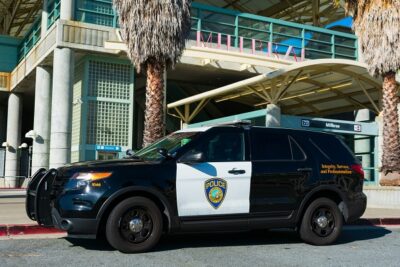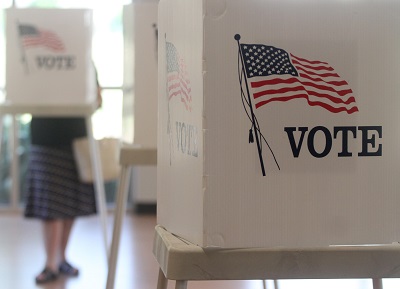Council CEO Calls for Regional “Mutual Aid” Response for BART
Bay Area Council President and CEO Jim Wunderman today (Aug. 8) called for an immediate regional “mutual aid” response by Bay Area law enforcement agencies to boost public safety on BART following a recent string of violent and deadly attacks on a transit system that serves an average of almost 420,000 riders daily.
“We need swift, forceful and sustained action to avoid future violent attacks and restore public confidence in the Bay Area’s largest mass transit system,” said Jim Wunderman, President and CEO of the Bay Area Council, which was instrumental in the creation of BART. “Like we do in cases of natural disasters and other extreme emergencies, we must mobilize local law enforcement to partner with BART as it works to address a troubling spike in violent crime in the system.”
News reports have highlighted a string of deadly and violent knife and other attacks on trains and in stations in recent weeks, which come as BART is experiencing a significant overall jump in violent crimes over the past 10 years. Reports have also highlighted the challenges BART is facing in maintaining its own police force as the system and ridership grow.
“BART riders deserve to feel safe when they enter a station or board a train and not providing for their safety will push them into their cars and cripple our already congested highways and bridges,” Wunderman said. “Not addressing this problem will have huge and negative implications for every city and county that BART serves, and for our entire region. A shock and awe show of force by law enforcement will send a direct and powerful message to commuters that we’re looking out for their safety and to criminals and other offenders to stay away from BART. New York has had great success with its Operation Impact in staunching all types of crimes. It’s a model we should explore for responding not only to the recent spike in violent crimes but to the ongoing litany of other smaller offenses, from drug use to loitering, that make riders feel unsafe and unwelcome on BART.”
Wunderman said police chiefs, sheriffs and other law enforcement agencies whose cities and counties are served by BART should convene a task force to discuss with BART how they can deploy officers to help increase patrols on trains and stations, among other enforcement and public safety activities. He noted that fire protection agencies regularly employ mutual aid agreements to share resources, provide for stronger, faster response in times of disaster and emergency and even to conduct training.
Wunderman commended an announcement Monday by BART that it is taking steps to bolster patrols by using overtime shifts and other safety enhancement techniques. The BART Board of Directors is scheduled to consider the additional enforcement efforts and Wunderman urged its quick approval. Wunderman also applauded police officials in San Francisco and Oakland for contributing officers to help BART, but said more needs to be done and that the dozens of other cities and counties whose residents use BART have a role to play.
“The Bay Area and its 101 cities and nine counties have a wealth of public safety resources available to us if only we can get past some of the historic territorial and other obstacles that so often get in the way of such a mutual aid response,” Wunderman said. “There are many examples of this sort of mutual aid response working effectively in other cities and regions and there’s no reason it can’t work here if we set our mind and will to doing it.”
“Violent crime doesn’t abide jurisdictional or city boundaries and we shouldn’t let those boundaries get in the way of using all available resources to make BART safe for all riders,” Wunderman said. “And there are many other benefits to public safety beyond protecting BART riders that we can realize by working together and creating flexible, scalable regional law enforcement mechanisms for addressing local crimes and other public safety needs.”





